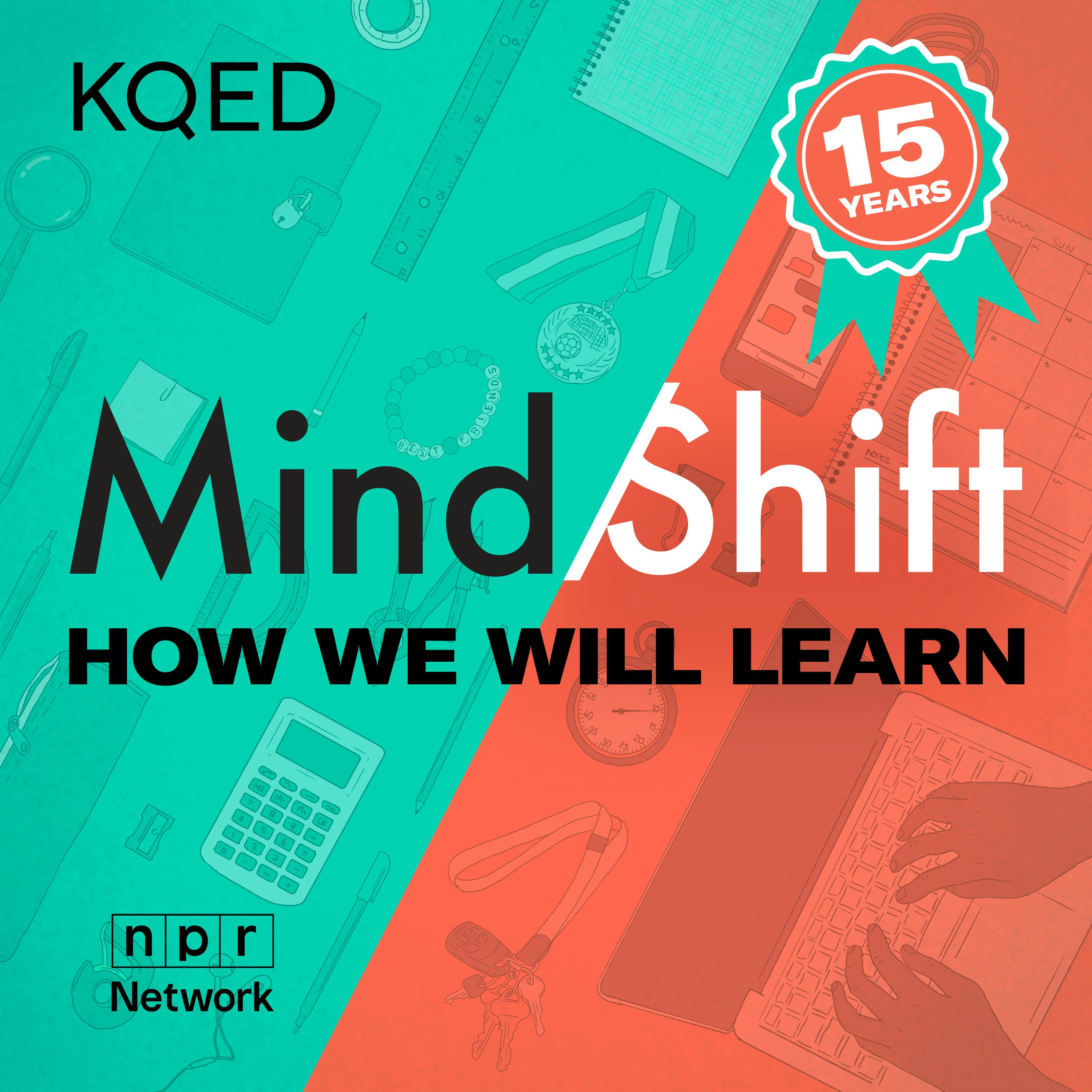

MindShift Podcast
KQED
It’s easy to see a child’s education as a path determined by grades, test scores and extra curricular activities. But genuine learning is about so much more than the points schools tally. MindShift explores the future of learning and how we raise our kids. This podcast is part of the MindShift education site, a division of KQED News. You can also visit the MindShift website for episodes and supplemental blog posts or tweet us @MindShiftKQED or visit us at MindShift.KQED.org. Take our audience survey! https://survey.alchemer.com/s3/7297739/b0436be7b132
Episodes
Mentioned books

Sep 17, 2019 • 23min
Teaching 6-Year-Olds About Privilege and Power
Privilege and power play out in the world all around us everyday. And kids notice. First grade teacher Bret Turner has decided not to avoid the difficult conversations and questions his students bring to class. Instead, he's weaving issues of privilege and power into everything he does.

Sep 3, 2019 • 24min
Childhood As ‘Resume Building’: Why Play Needs A Comeback
The kind of free play grown-ups had in previous generations is looked at with nostalgia in today’s era of adult-supervised activities. Children are missing out on the benefits of unstructured play, but a group of dedicated educators are trying to give kids back their play time. For one day in February, class time is dedicated to play time via the Global School Play Day movement. In 2019, more than 530,000 students participated around the world.

Aug 20, 2019 • 27min
How Can Schools Help Kids With Anxiety?
Anxiety is running rampant in high schools around the country, both rich and poor. The driving factors may be different, but it’s the same lonely, debilitating feeling. It makes it hard for students to learn and to deal with life. Katrina Schwartz takes us inside the experience of anxiety from two teens’ perspectives and shares strategies educators and parents can use to help them cope.

Aug 13, 2019 • 5min
MindShift Podcast is Back With Season Four!
We asked what issues matter to you most and we listened. The fourth season of the MindShift podcast dives into the question: How can we bring joy back to learning and teaching?

Nov 20, 2018 • 26min
Dropping Out and Coming Back: Stories of Persevering for a Diploma
Close to 24-percent of Oakland ninth graders drop out before their senior year of high school. Some of those young people ultimately decide that they need to go back to school in order to get ahead in life. We explore what it takes to support over-aged students to a high school diploma -- and college or a career -- when they’re facing homelessness, juggling family responsibilities, or are navigating criminal records. We hear the stories of three young people: why they dropped out and what brought them back.

Nov 6, 2018 • 23min
How Teachers Designed a School Centered On Caring Relationships
Ask almost any teacher why they teach and they'll give you similar answers: they love the kids. But what does that love look like when it's a community value, shared by every adult in the building, no matter how difficult it feels? At Social Justice Humanitas Academy in Los Angeles' San Fernando Valley, love is baked into everything from academic probation to math class. And it's making a difference for the mostly Latino, mostly low-income student population. We explore how Social Justice Humanitas has found success where so many others struggle.

Oct 23, 2018 • 28min
The Role of Community in Creating and Healing Trauma in Kids
When kids live in violence-prone neighborhoods, the environment can enable trauma in their lives. One youth center in Richmond, California, is seeking to change the community’s culture by providing something to young people that’s sometimes missing in their schools and home lives: love and support. The RYSE Center is teaching a generation of young people -- and adults -- what it means to have a path for improvement for themselves and their community.

Sep 25, 2018 • 28min
Overcoming Childhood Trauma: How Parents and Schools Work to Stop the Cycle
Many people have experienced some kind of trauma in their childhood, such as loss of a caregiver, substance abuse in the home, homelessness or abuse. There are ten types of trauma classified as “Adverse Childhood Experiences” that came to light in a study conducted in the 1990s, which found higher rates of illness in adults associated with the amount of trauma people experienced as children. In this episode, you’ll hear how a school in Butte County, California takes a trauma-informed approach to educating students. You’ll also hear how a mother who’s experienced eight childhood traumas works with a therapist to find healing as she raises her own daughter.

Sep 12, 2018 • 34min
Why Ninth Grade Can Be a Big Shock For High School Students
High school is an important time in the life of any teen: hormones are raging, social cliques are forming and the pressure is on to develop a college resume. Teens gain more independence as they get older, but adults also expect more from teens without providing as much of the nurturing and guidance of their earlier years. Starting high school is a big transition, and it turns out, the ninth grade a pivotal moment for teens’ potential success or failure in high school. At Hillsdale High School in San Mateo, California, educators are combating “ninth grade shock” by developing the kind of community kids don’t want to miss.

Aug 28, 2018 • 25min
Can Inviting Teachers Over to Your Home Improve How Kids Learn?
Teachers can go an entire school year and only see a child’s parent once: on back to school night. And most parents are conditioned to think the worst when they get a phone call from the school. But what if teachers and parents could build trust with each other earlier? Teachers at schools in at least 20 states are visiting families in their homes to break the ice and occasionally, some bread.


